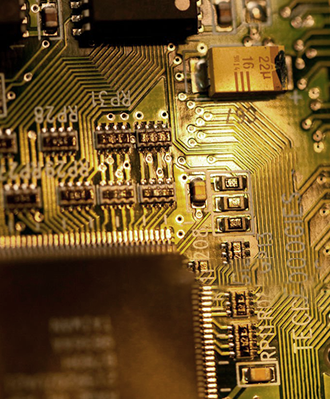Unleashing the Quantum Revolution The Promise and Potential of Quantum Computing
The Promise and Potential of Quantum Computing

Introduction
Quantum computing, a cutting-edge field that blends quantum mechanics and information theory, has taken the world of technology and science by storm in recent years. This transformative technology holds the potential to revolutionize everything from cryptography and drug discovery to artificial intelligence and climate modeling. In this article, we will delve into the fascinating world of quantum computing, exploring its fundamental principles, current developments, and the profound impact it may have on our future.

Quantum Computing: A Paradigm Shift
Classical computers, which rely on bits as their fundamental unit of information, can represent data as either 0 or 1. This binary framework has powered our digital world for decades, but it has inherent limitations when it comes to solving complex problems. Quantum computing, on the other hand, uses quantum bits or qubits, which can exist in multiple states simultaneously due to the principles of superposition and entanglement.
Superposition allows qubits to be in a combination of 0 and 1 states at the same time, drastically increasing the computational possibilities. Entanglement, another intriguing quantum phenomenon, links the states of qubits, even when separated by vast distances. This enables the manipulation of qubits in a way that classical bits cannot be, leading to the development of quantum algorithms that have the potential to outperform classical counterparts.
Quantum Computing and Cryptography
One of the most pressing issues in our digital age is the vulnerability of our data to cyberattacks. Classical encryption algorithms rely on the difficulty of factoring large numbers to keep data secure. However, quantum computers have the potential to solve these problems exponentially faster than classical computers using a quantum algorithm called Shor’s algorithm.
Shor’s algorithm poses a serious threat to current encryption methods. To counter this, researchers are developing quantum-resistant encryption techniques that will remain secure even in the face of quantum attacks. Quantum key distribution (QKD) is one such solution, offering ultra-secure communication by leveraging the principles of quantum entanglement to create unbreakable encryption keys.
Quantum Computing and Drug Discovery
The pharmaceutical industry stands to gain immensely from the computational power of quantum computing. Drug discovery is a complex and time-consuming process that involves simulating the behavior of molecules and proteins. Classical computers often struggle to accurately model these systems, but quantum computers can simulate molecular interactions and biological processes with unprecedented precision.
Quantum computing could potentially accelerate drug discovery by rapidly testing and optimizing drug candidates, leading to breakthroughs in cancer treatment, antibiotic development, and many other critical medical fields. This has the potential to save countless lives and reduce the economic burden of healthcare.
Quantum Computing and Artificial Intelligence
Artificial intelligence (AI) has witnessed tremendous growth in recent years, thanks to deep learning and the processing capabilities of classical computers. However, many AI tasks remain computationally intensive and time-consuming, such as training deep neural networks. Quantum computing can significantly enhance the capabilities of AI by providing a quantum speedup for certain AI algorithms.

Quantum machine learning (QML) combines quantum computing and AI, offering the possibility of solving problems like optimization, pattern recognition, and data analysis at a pace previously thought impossible. Quantum AI models could lead to breakthroughs in fields like autonomous vehicles, healthcare diagnostics, and natural language processing.
Quantum Computing and Climate Modeling
Climate change is one of the most pressing challenges of our time, requiring sophisticated modeling and simulation to understand and mitigate its effects. Quantum computing has the potential to revolutionize climate modeling by offering faster and more accurate simulations.
Quantum computers can process vast amounts of climate data in real-time, enabling scientists to run highly detailed models and explore different scenarios with unprecedented speed. This could lead to more accurate climate predictions, allowing us to make informed decisions to mitigate the impacts of global warming.
Current State of Quantum Computing
While the potential of quantum computing is clear, the field is still in its infancy, facing several significant challenges. Quantum computers are notoriously delicate and susceptible to environmental interference, requiring extreme conditions to operate. Additionally, they are currently limited in terms of the number of qubits and their error rates.
Several companies and research institutions are actively working on advancing quantum computing technology. Google’s quantum supremacy experiment in 2019 marked a significant milestone, demonstrating that a quantum computer could solve a specific problem faster than the most advanced classical supercomputer. IBM, Intel, and startups like Rigetti and IonQ are also making strides in developing quantum hardware.
Quantum Computing and Quantum Software
As quantum hardware progresses, quantum software is evolving to harness its power. Quantum programming languages like Qiskit and Quipper enable researchers and programmers to write algorithms for quantum computers. These languages simplify the task of creating quantum circuits and experimenting with quantum algorithms.

Quantum software development is a growing field, and as more people become familiar with quantum programming, it’s likely that we’ll see a proliferation of quantum applications and software that leverage the unique capabilities of quantum computers.
Quantum Computing’s Impact on Various Industries
- Finance: Quantum computing can optimize complex financial models, revolutionize risk assessment, and improve portfolio management. It can also enhance fraud detection and cybersecurity in the banking sector.
- Aerospace: Quantum computing can assist in optimizing flight routes, designing more efficient aircraft, and improving satellite communications.
- Logistics: Quantum algorithms can streamline supply chain management, optimize route planning, and improve warehouse operations.
- Energy: Quantum computing can enhance the development of renewable energy sources and improve the efficiency of power grids.
- Materials Science: Quantum computers can assist in the discovery of new materials with exceptional properties for various applications, including superconductors and energy storage materials.
Challenges and Future Outlook
Quantum computing has the potential to transform various industries, but several challenges must be overcome before it becomes widely accessible. Some of these challenges include improving qubit stability, reducing error rates, and creating a scalable quantum architecture. Researchers are also working on quantum error correction codes to mitigate the effects of errors.
The future of quantum computing holds immense promise. As hardware continues to advance, quantum computers are expected to tackle complex problems that were previously insurmountable for classical computers. Quantum computing as a service (QCaaS) may become more prevalent, enabling businesses and researchers to access quantum resources remotely.
In conclusion, quantum computing is a revolutionary field that has the potential to reshape the world as we know it. From enhancing cybersecurity to accelerating drug discovery and transforming artificial intelligence, quantum computing’s impact will be felt across numerous industries. As researchers continue to advance quantum hardware and software, we move closer to unlocking the full potential of this groundbreaking technology. It’s an exciting time for science and technology, and the quantum revolution is just beginning.
The journey to fully harnessing the power of quantum computing may be long and challenging, but the possibilities it presents are nothing short of awe-inspiring. As we look ahead, we can anticipate a future where quantum computers are integral to solving some of humanity’s most complex problems and driving innovation across countless domains.





